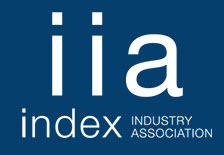Increasing Complexity Driving Global Asset Managers to Seek New Skills, Deeper Partnership with Index Providers, Finds IIA Survey
Increasing Complexity Driving Global Asset Managers to Seek New Skills, Deeper Partnership with Index Providers, Finds IIA Survey
NEW YORK--(BUSINESS WIRE)--The Index Industry Association (IIA) today announced the results from its fourth annual Survey of Global Asset Managers. The Survey reveals that “forces of change” including the economic environment, the rise of AI, changing views on ESG, and the emergence of private markets are driving complexity for managers. Addressing these new challenges will require new skills, resources, and broadening alliances with index providers whom managers view as increasingly valuable partners.
“Asset managers globally are grappling with both short-term volatility and more profound, longer-term structural forces tied to technological innovation and the growth of new markets,” said IIA CEO Rick Redding. “While each of these forces has its own drivers and momentum, together they add up to an asset management environment of growing complexity with new areas of risks and opportunities.”
The IIA’s 2024 Survey of Global Asset Managers offers a unique glimpse into how asset managers view progress against current challenges and opportunities as well as into the key factors shaping the longer-term evolution of the industry. Now in its fourth year, the IIA survey, conducted independently by research firm Opinium, identifies, tracks and tests key trends in the asset management industry by surveying 300 Chief Financial Officers (CFOs), Chief Investment Officers (CIOs) and portfolio managers across Europe and the US.
Generative AI Creating Buzz, Optimism
Asset managers are enthralled by the possibilities afforded by generative AI. Two-thirds say that generative AI/machine learning is the topic raised most frequently by their firms and colleagues over the past 12 months.
Respondents report already using generative AI tools, including virtual assistants, in many areas of asset management, from providing personalized financial advice based on transaction history, to analyzing market news and trends to identify and research investment opportunities, to optimizing portfolios, and assessing market risk.
Changing ESG Dynamics
Managers’ expectations about the growth rate of their ESG portfolios declined somewhat from 2022/23 survey levels. Asset managers now expect that, in 2025, 27.5% of their portfolios will contain ESG elements, rising to 33.9% by 2027, compared to the previously forecasted 48.2% and 57.4% respectively. Similar adjustments are also evident at the ten-year time horizon.
But ESG still figures prominently in asset managers’ thinking and strategy. More than half (51%) pointed to sustainable investing as the topic most frequently mentioned by their firm and colleagues over the last year. And 39% consider it to offer an opportunity for their business, while only 17% consider it a challenge. UK and German asset managers were particularly optimistic, with 56% and 47%, respectively, considering it an opportunity.
Private Markets Both an Opportunity and Challenge
Despite the growing prominence of private markets, asset managers are polarized over whether private markets are an opportunity (37%) or a challenge (29%). US asset managers are notably more positive, however, with 45% considering private markets to be an opportunity. CIOs are also significantly more positive (opportunity 46% / challenge 29%).
Index Providers Viewed as Valuable Partners for Navigating Changing Industry
Asset managers increasingly see index providers as important to their success. More than half (52%) say that index providers and their services will become more important to their firm’s success over the next 12 months. Demand seems set to climb appreciably, with 20% of asset managers expecting to increase their use of index providers over the next 12 months and only 6% expecting a decrease.
Reflecting the steady drift toward AI and the emergence of new asset classes, asset managers would like to see more technology integration and specialization from index providers. Notably, asset managers would like to see the application of AI in indexes (27%), the development of more customized indexes (25%), direct indexing solutions and support (24%), and thematic and sector-specific indexes.
“This year’s survey highlights global asset managers’ varied views of the risk and opportunities around AI, ESG and the development of new markets,” notes Fiona Bassett, IIA Chair and FTSE Russell CEO. “Whatever their views, asset managers identify index providers as valuable partners and a critical source of innovation which is a strong signal of continued growth for the entire ecosystem around indexing.”
Findings from the 2024 Survey of Global Asset Managers can be found on the IIA’s website.
About the IIA
Many of the leading independent index providers in the world are members of the IIA, including Bloomberg Indices, CBOE Global Indices, the Chicago Booth Center for Research in Security Prices (CRSP), China Bond Pricing Co. Ltd., China Securities Index Co. Ltd., FTSE Russell, Hang Seng Indexes, ISS-STOXX, JPX Market Innovation and Research (Tokyo Stock Exchange), Korea Exchange, Morningstar, MSCI Inc., NASDAQ OMX, Parameta Solutions, Shenzhen Securities Information Co. Ltd., and S&P Dow Jones Indices LLC..
IIA members administer over three million indices for their clients, covering many asset classes, including equities, fixed income, and commodities. Part of the IIA’s mission is to consider ways to promote best practices for index providers, which makes it a natural supporter of appropriate and proportionate industry standards. Our members are dedicated to promoting transparency, competition, sound operational practices, intellectual property rights, education, and effective index management practices. IIA members are independent index administrators who neither trade the underlying component securities of their indices nor directly create products for investors. Moreover, our members publicly make available their methodologies and explain how their indices are created, calculated, or maintained.
Contacts
Mandy Boyd, Buttonwood Communications
mboyd@buttonwoodpr.com
